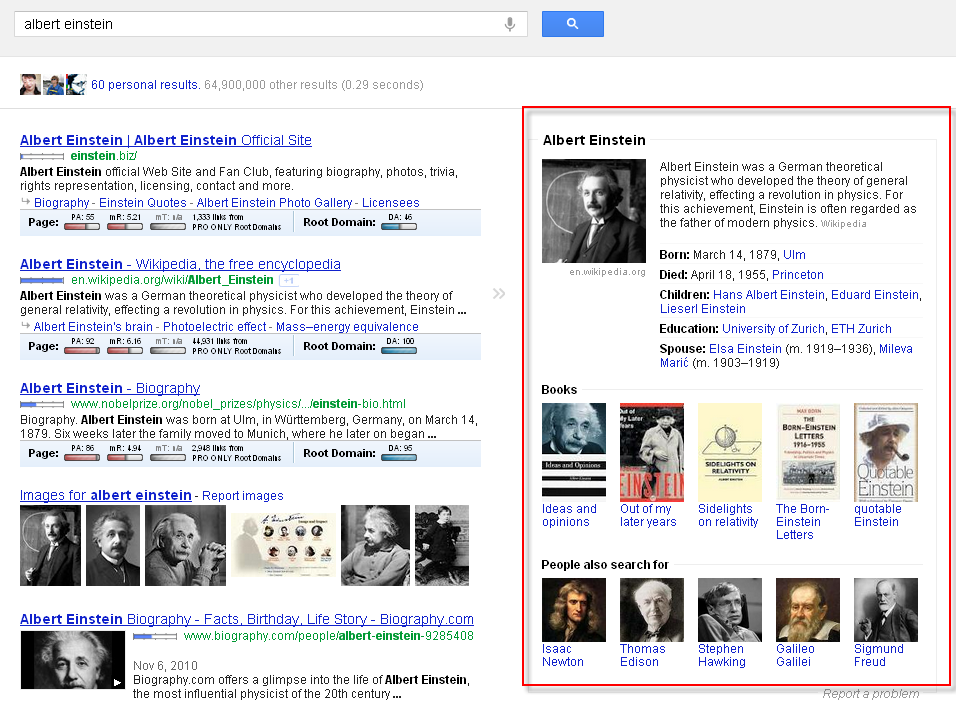If you’ve carried out a Google search seeking tangible and factual information about something within the past two weeks, you undoubtedly experienced Google’s new “Knowledge Graph” feature possibly without even knowing it.
In short, the “Knowledge Graph” uses very sophisticated logic from a searcher’s keyword query to determine attributes that are consistent throughout the top search results. As a result, a basic search for “Albert Einstein” yields me a brief biography and other indisputable facts about the man. Because this information is known as fact, Google now serves it up in its own panel on the right side of the search results as seen below.

As if Google wasn’t already controlling the way we obtain information, they are now using their powers to essentially sabotage the big name sites that are leaders of information on the web. In other words, although unintentionally at the surface, Google is potentially taking a great deal of traffic away from Wikipedia.
They’re doing it for you.
I am on the boat of the people that believe Google is only doing what they believe benefits their customers (the searchers) the most. As a technology company, it is their right to make significant improvements to their innovations, even if they come at the cost of others. In this case, the searcher is able to find their desired information much quicker and without any clicks. I’d consider that a value-add for their end customers.
Being too presumptuous can always backfire.
The question for the future of Google’s algorithm is how it will expand this logic into more arbitrary searches. It’s obvious that Google uses the information collected from the most clicked on results for a query that might cover more than one item or topic. I searched for a common name like Kevin Brown as an example.

By the look of the results, it’s apparent that Google believes that the most popular Kevin Brown in history is the right-handed MLB pitcher. But what if I was indeed looking for information on the actor (green arrow)? Will Google eventually have ways to identify that through other surrounding information about me? My social connections? Even my geography?
Google goes above and beyond.
My favorite example of the Knowledge Graph in the wild so far is a basic search for the word “braves.” Google is not only able to determine that I am, in fact, looking for information on the MLB team, the Atlanta Braves, but they are also able to feed me information that is well beyond the necessities.

The green arrow above points to the most interesting subsection of the Knowledge Graph results. From the keyword “braves” alone, Google is able to tell me the entire roster for the Atlanta Braves. Players’ names would be impressive enough, but to relay to me their uniform number and position is extremely intelligent.
Google will only get smarter.
However Google is able to sort through the web’s massive amounts of information, it’s obvious they’re doing a great job at it. If this is merely version 1 of a major search upgrade, I am excited to see future iterations of it.